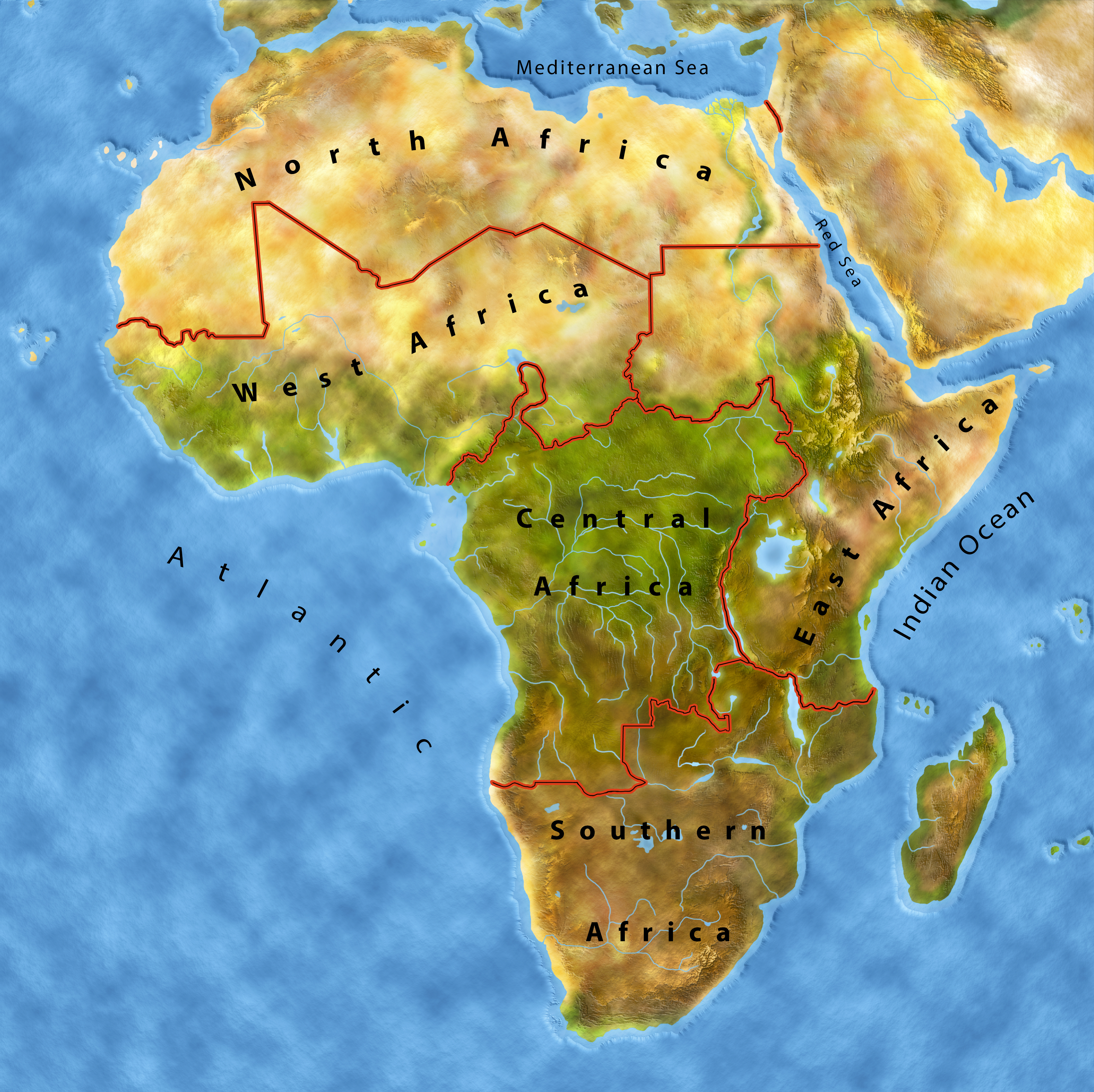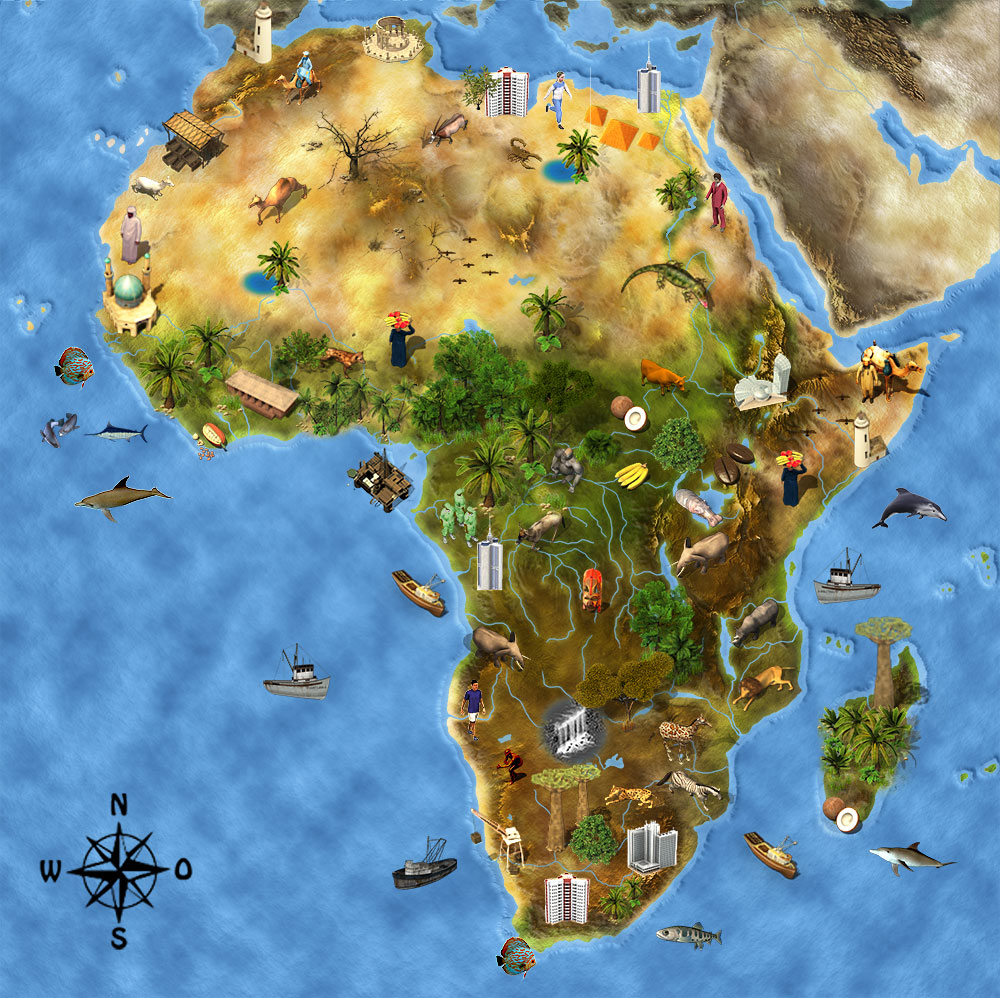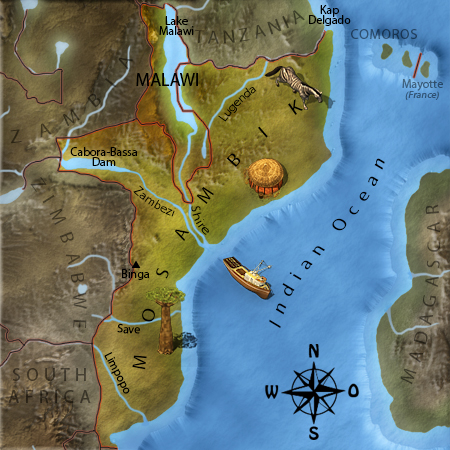Moni, welcome to Malawi, a beautiful country in southern Africa.
Location and Landscapes
The Republic of Malawi is a small midland in southeast Africa. In Malawi you will find the Lake Malawi. As you can see on the map it covers about a quarter of the country.
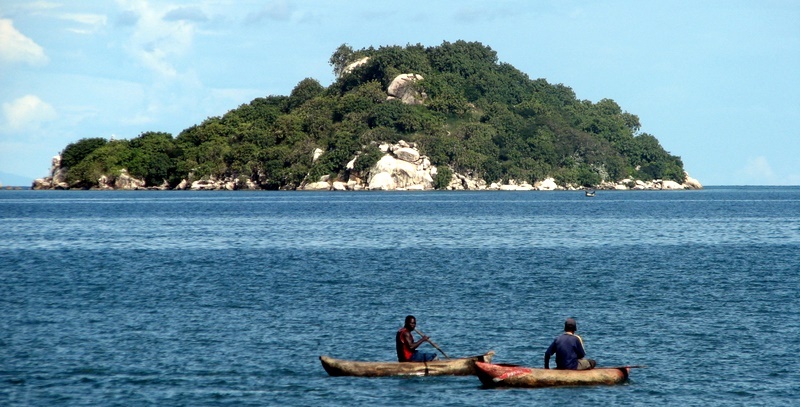
With its long shape the country has adapted to the lake. In the north lies Tanzania, in the west Zambia, and in the south Mozambique.
For comparison: Malawi only has a third of the area of Germany.
Mountain Ranges and Farmland Shape the Landscape of Malawi
Malawi has a great diversity of beautiful landscapes with plateaux, highlands, forests, mountains, plains, and river valleys. The highest peaks in Malawi touch 3 000 m while the lowest point is barely above sea level. Malawi lies in the subtropical climate zone. Therefore, the temperature is a pleasant 25 degrees year-round but there is a change from dry to rainy season. During the rainy season, between November and April, it is very humid. The humidity often reaches 100% – almost impossible for Europeans to withstand.
Lilongwe, the Capital of Malawi
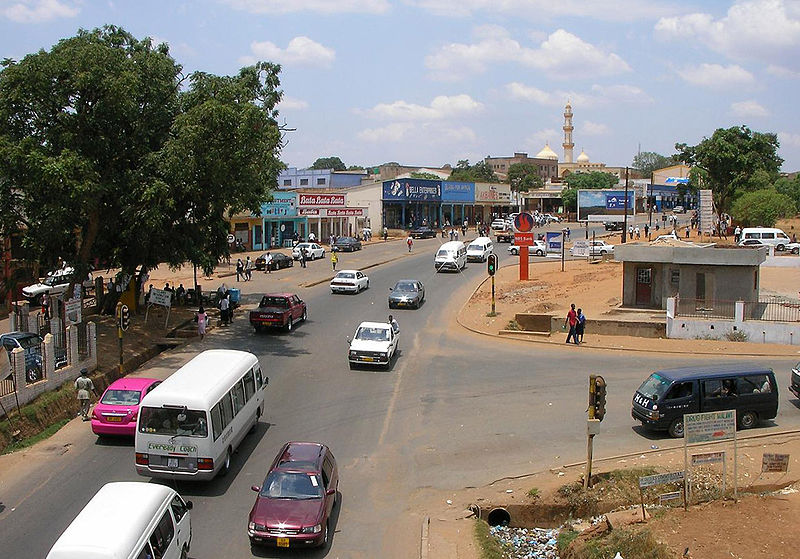
Lilongwe lies in south Malawi. It was founded in 1947 as a trading center. Today Lilongwe is the capital and the administrative center of the republic. With more than 670,000 inhabitants Lilongwe is Malawi’s largest city. There are fields, meadows, and many trees that offer shade. It is one of the few cities where Indians are allowed to settle. There are many Indian stores in the city because of this. You can explore native handicraft and exotic fruits, like Papaya, Mango, and Guave, on the colorful market of Lilongwe.
Blantyre
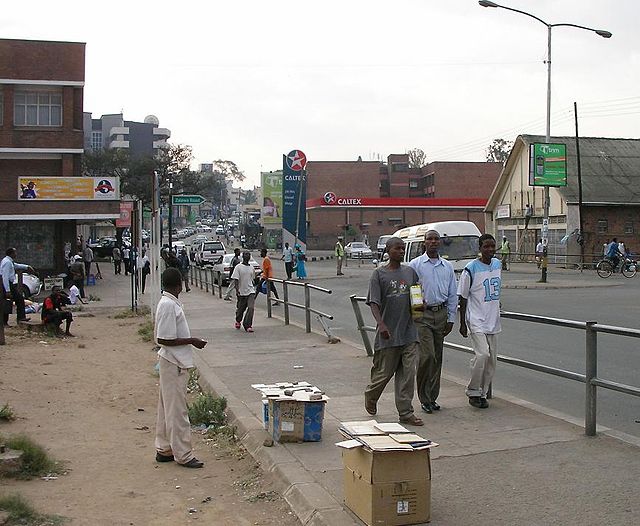
Peoples and Languages
Malawi’s inhabitants belong to various different groups of Bantu. The largest group would be the Chewa, who had founded a kingdom in Malawi. Besides the Chewa there are many smaller groups of peoples like the Ngoni or the Yao.
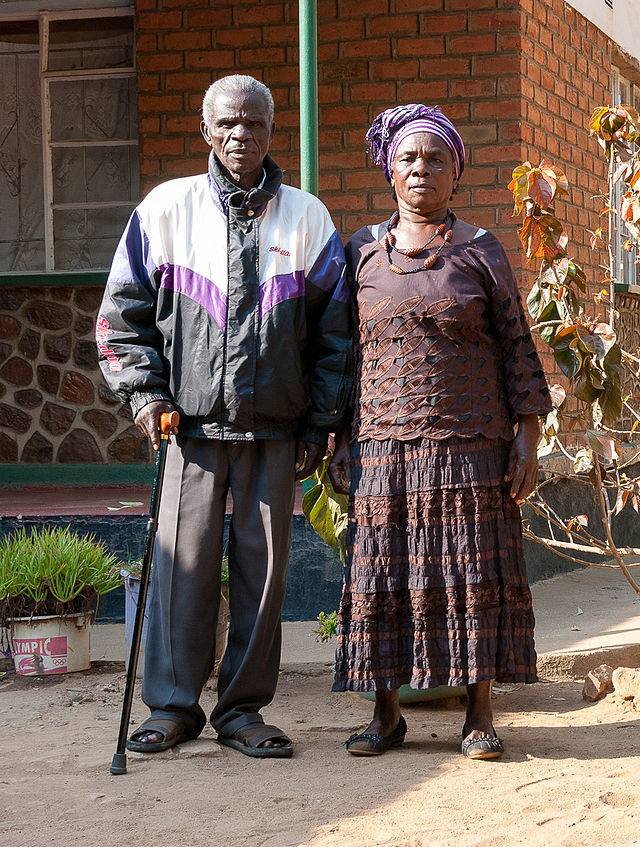
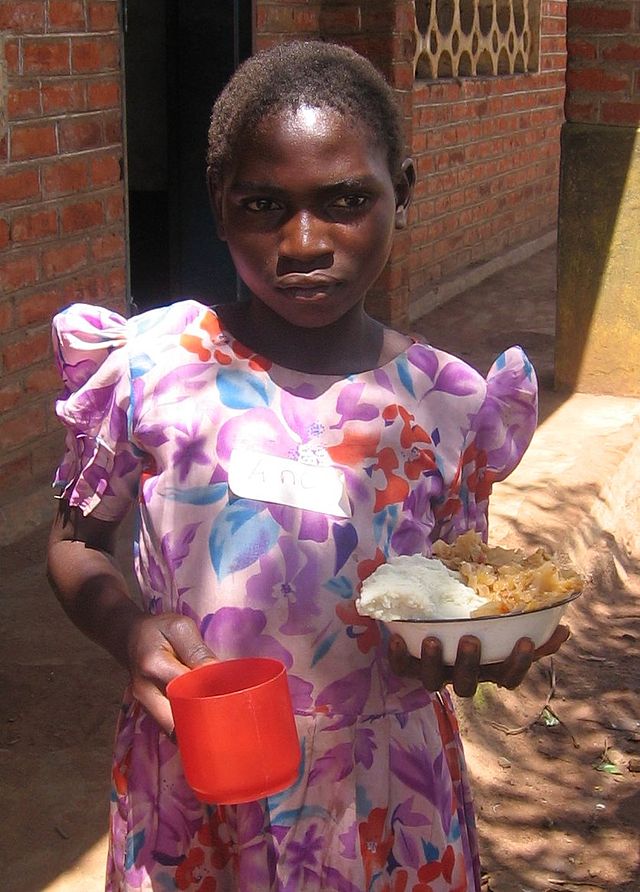
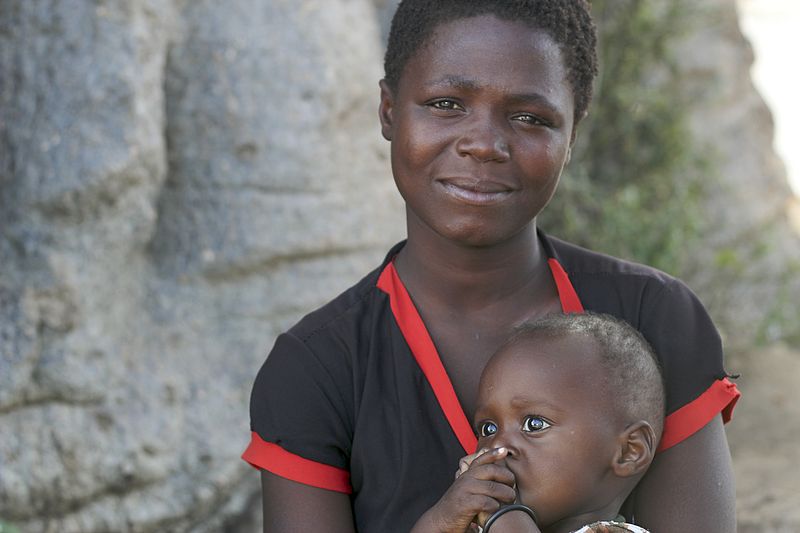
The Bantu language Chichewa and English are the official languages here because Malawi used to be a British colony. Most Malawians are Christian, only a few are of Muslim belief. Most maintain their traditional African, nature-oriented religions as well as the colonial religions. Malawians are very open and friendly people. This is why Malawi is also called the “warm heart of Africa”. The rural inhabitants still lead a very traditional lifestyle. Malawians try to dress very elegantly despite the heat. Even simple farmers wear suits and a tie on Sundays and on holidays, if they can afford it.
Schools and Education
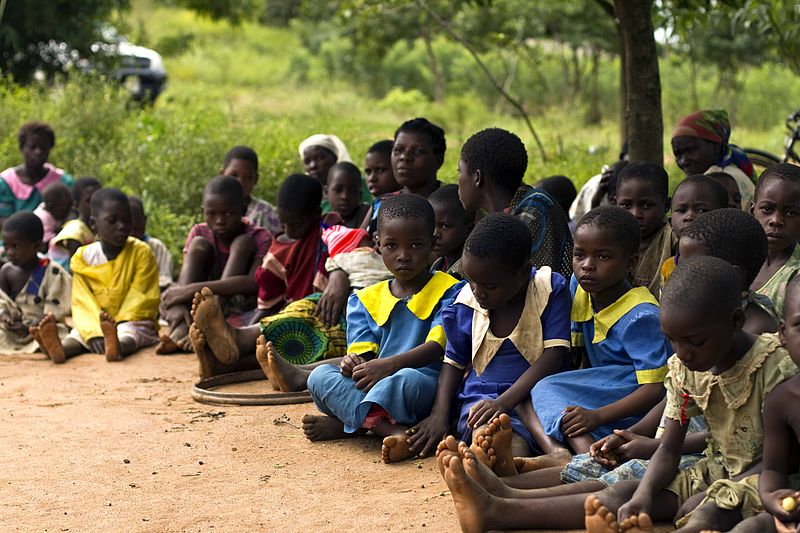 Malawi does not have enough schools! The world public knows this since the singer Madonna financed the construction of ten schools in Malawi. School has been compulsory since the nineties. There are still not enough schools, books, or teaching material though. Classes become quite provisional because of this. Especially in the rural areas there are not enough toilets. The government is doing a lot to improve the situation. More and more private schools are being built as well. Most children visit the public schools though since no fees are necessary here.The curriculum is very similar to ours. Math, reading and writing, and geography. Furthermore there are more practical classes like agriculture. Boys get to learn how to carpenter, about metallurgy, and technical drawing. Girls receive education in home economics. Almost all students visit at least the first couple of years of primary school and learn to read and write. Only few visit a secondary school since they cannot afford to. Girls in rural areas are especially disadvantaged. They often do not graduate because they have to help at home and on the farms.
Malawi does not have enough schools! The world public knows this since the singer Madonna financed the construction of ten schools in Malawi. School has been compulsory since the nineties. There are still not enough schools, books, or teaching material though. Classes become quite provisional because of this. Especially in the rural areas there are not enough toilets. The government is doing a lot to improve the situation. More and more private schools are being built as well. Most children visit the public schools though since no fees are necessary here.The curriculum is very similar to ours. Math, reading and writing, and geography. Furthermore there are more practical classes like agriculture. Boys get to learn how to carpenter, about metallurgy, and technical drawing. Girls receive education in home economics. Almost all students visit at least the first couple of years of primary school and learn to read and write. Only few visit a secondary school since they cannot afford to. Girls in rural areas are especially disadvantaged. They often do not graduate because they have to help at home and on the farms.
Games Children play
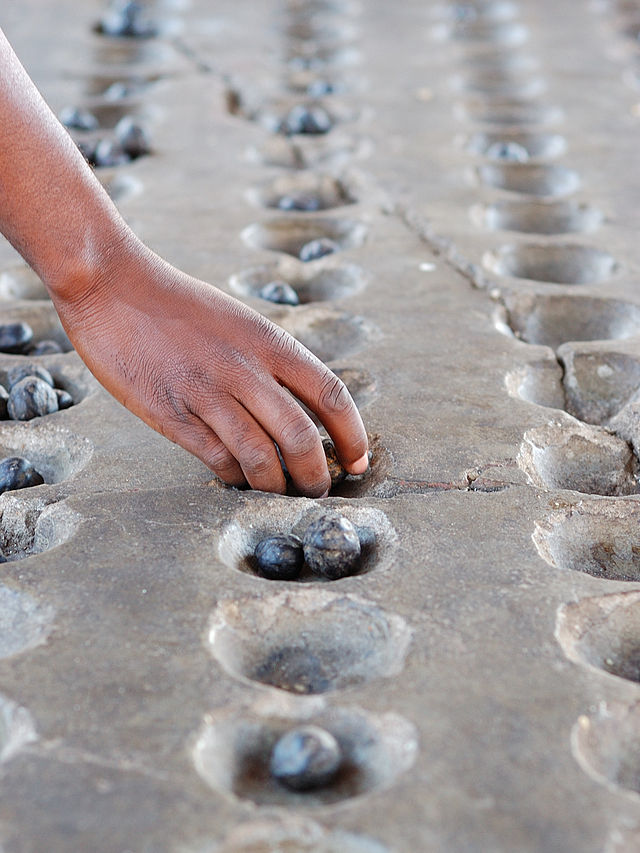 British colonialists brought soccer to the country. Today it is the most popular sport in Malawi. Many parents don’t have enough money for toys. Lots of fantasy is used to make toys from wood, wire, or shellfish. Children enjoy the game played with beans called Mancala. You can even play it in the sand. All you need is stones or beans. Children enjoy making music together as well. They tinker around and make drums or a thumb piano. This often turns into a party since even the smallest ones are allowed to join in and dance to the music.
British colonialists brought soccer to the country. Today it is the most popular sport in Malawi. Many parents don’t have enough money for toys. Lots of fantasy is used to make toys from wood, wire, or shellfish. Children enjoy the game played with beans called Mancala. You can even play it in the sand. All you need is stones or beans. Children enjoy making music together as well. They tinker around and make drums or a thumb piano. This often turns into a party since even the smallest ones are allowed to join in and dance to the music.
Celebrations and Festivities
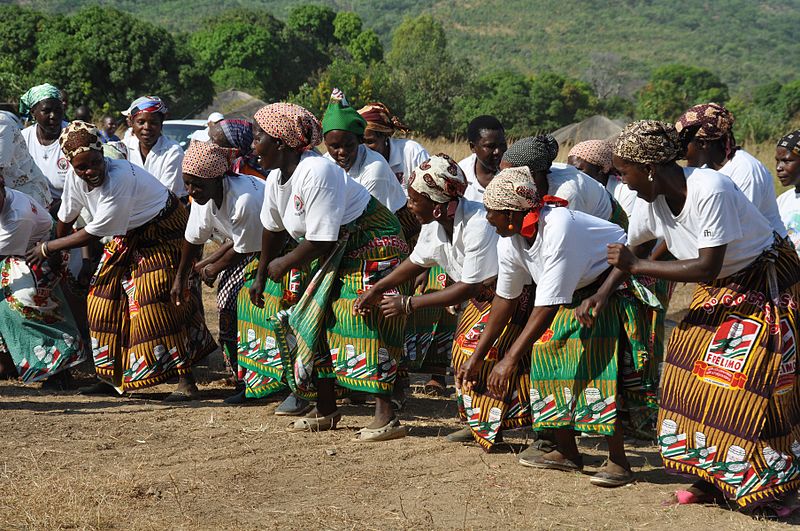
Dancing is a part of every festivity in the republic of Malawi. There are barely any get-togethers that do not end in music and dance. The Great Dance is a special occasion in Malawi. It belongs to the legacy of the Chewa. The dancers wear feathers, masks, and body paint during the performance. The masks are artfully crafted and painted. They are worn for almost all religious celebrations. The Great Dance is so artistic, that it belongs to the intangible cultural heritage since 2005.
Economy and Natural Resources
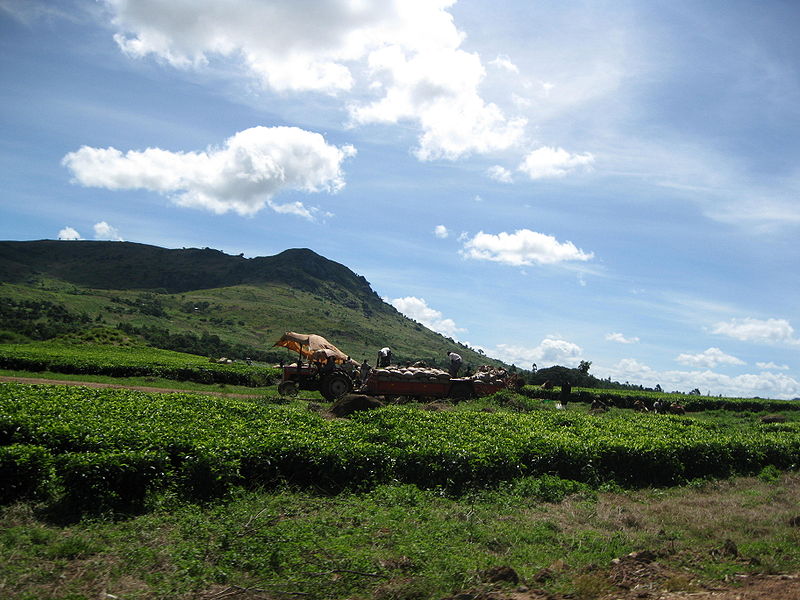
Attractions
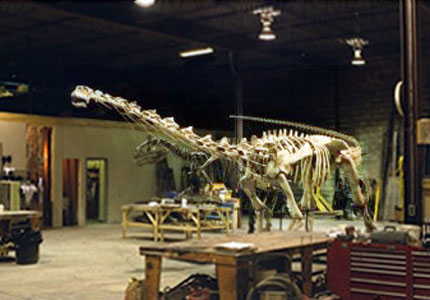 Are you interested in history? Then you shouldn't miss the Cultural and Museum Center in Koranga. One of the most terrifying slave traders Africa’s, had built a slave prison here. He probably did not know how historic the place was. This is where the oldest human bone was found. For the dinosaur fans: A complete skeleton of a dinosaur was found here. The dinosaur was named Malawisaurus and was absolutely humongous with a length of 16 meters. The giant herbivore roamed the mountains and woods around Lake Malawi.
Are you interested in history? Then you shouldn't miss the Cultural and Museum Center in Koranga. One of the most terrifying slave traders Africa’s, had built a slave prison here. He probably did not know how historic the place was. This is where the oldest human bone was found. For the dinosaur fans: A complete skeleton of a dinosaur was found here. The dinosaur was named Malawisaurus and was absolutely humongous with a length of 16 meters. The giant herbivore roamed the mountains and woods around Lake Malawi.
The cave paintings of Chongoni, a mountain in southern Malawi, are very mysterious. Scientists believe they are 2500 years old. It is a popular destination for divers since the scenery and species-richness are truly unique. Monkey Bay belongs to the UNESCO World Heritage program because almost half of all species of Lake Malawi live here. There are also hordes of monkeys here, as the name implies. Especially baboons can be found and are known for causing trouble.
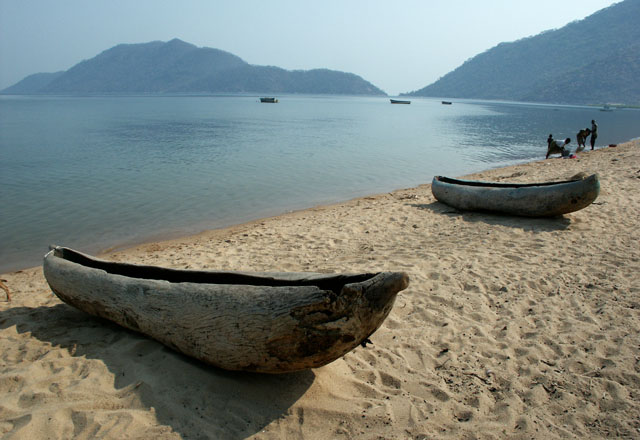 On the southern shore of Lake Malawi lies the Monkey Bay, which is situated in the Lake Malawi National Park. It is a popular destination for divers since the scenery and species-richness are truly unique. Monkey Bay belongs to the UNESCO World Heritage program because almost half of all species of Lake Malawi live here. There are also hordes of monkeys here, as the name implies. Especially baboons can be found and are known for causing trouble.
On the southern shore of Lake Malawi lies the Monkey Bay, which is situated in the Lake Malawi National Park. It is a popular destination for divers since the scenery and species-richness are truly unique. Monkey Bay belongs to the UNESCO World Heritage program because almost half of all species of Lake Malawi live here. There are also hordes of monkeys here, as the name implies. Especially baboons can be found and are known for causing trouble.
The Animal Kingdom
The small country in southern Africa has a total of nine national parks! Some of these parks include the Kasungu National Park, the Lengwe National Park and the Lake Malawi National Park, a small, protected area on Lake Malawi. Small islands and a part of the coast belong to the park. Animals that are typical for the southern savannah live here such as lions, rhinos, buffalo, or zebras.
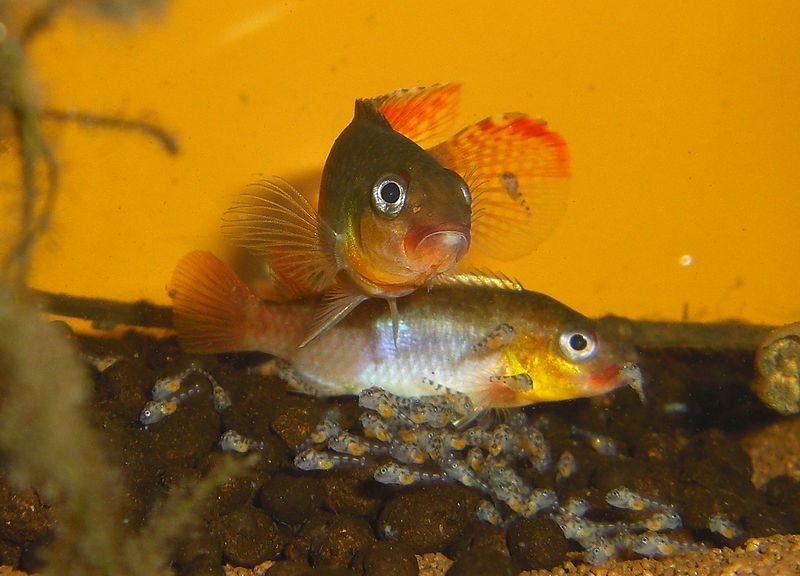
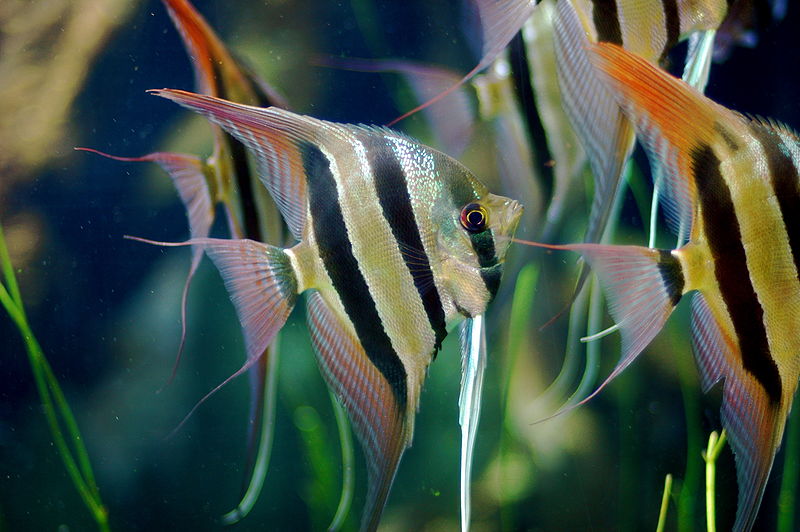
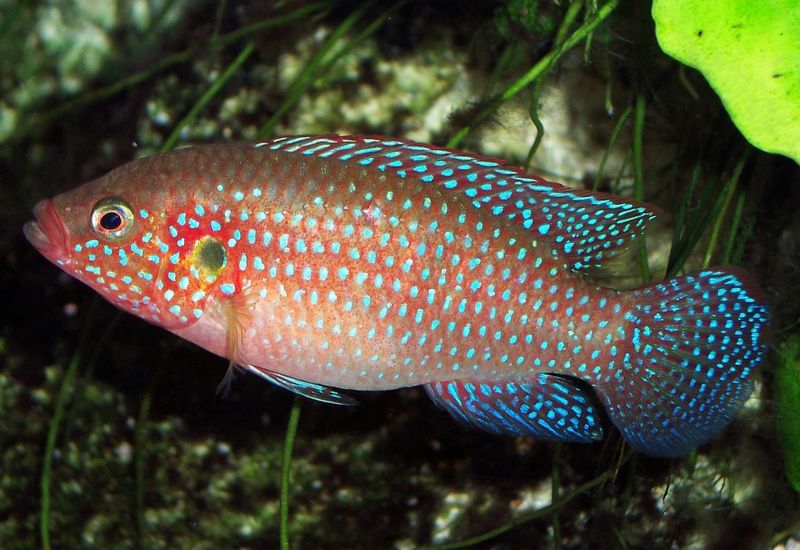
History
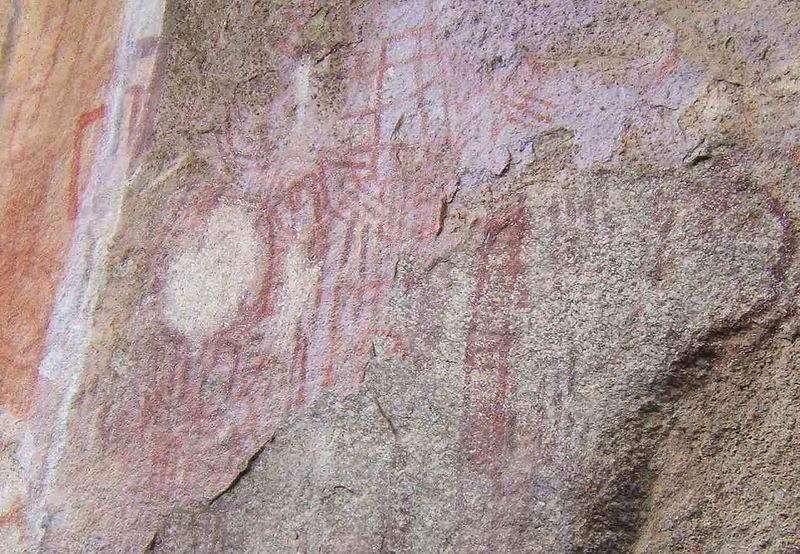 Africa is the origin of mankind. This fact is undisputed today. But where exactly the development of our ancestors began is still unclear. Archeologists find new discoveries from our ancestors every year. Each new location where something is found helps contribute to solving the mystery of the origin of mankind. This is exactly what happened recently in Malawi. Archeologists found the oldest human bone in Karonga. Judging by this, ancestors of the Homo sapiens had settled around Lake Malawi millions of years ago. It took a lot longer for peoples to leave behind artistic traces in this area like the Pygmies did when they roamed the woods of Malawi.
Africa is the origin of mankind. This fact is undisputed today. But where exactly the development of our ancestors began is still unclear. Archeologists find new discoveries from our ancestors every year. Each new location where something is found helps contribute to solving the mystery of the origin of mankind. This is exactly what happened recently in Malawi. Archeologists found the oldest human bone in Karonga. Judging by this, ancestors of the Homo sapiens had settled around Lake Malawi millions of years ago. It took a lot longer for peoples to leave behind artistic traces in this area like the Pygmies did when they roamed the woods of Malawi.
Malawi Today
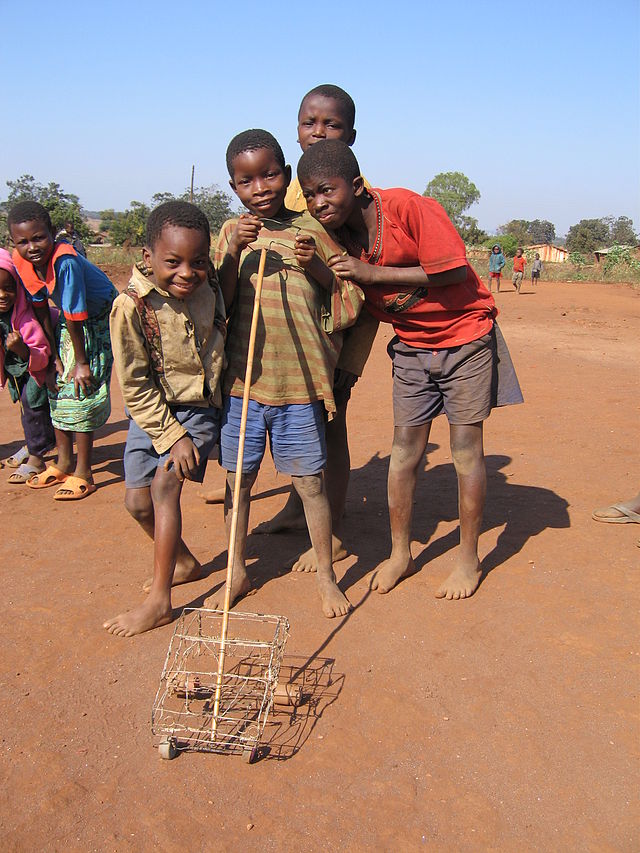
Malawi is a republic since 1994. Free elections take place but does this make Malawi a democracy? Not really. Half of the 15 million inhabitants are children and young adolescents. They do not have the right to vote and have no way to influence decisions in politics. But they will coin the future of their country. A part of them lives on the streets. Due to the Aids epidemic they have lost their parents. They somehow manage to survive by doing odd jobs and by begging, or by stealing. Unfortunately, the government is not doing much to give them a home and help them to get educated.



